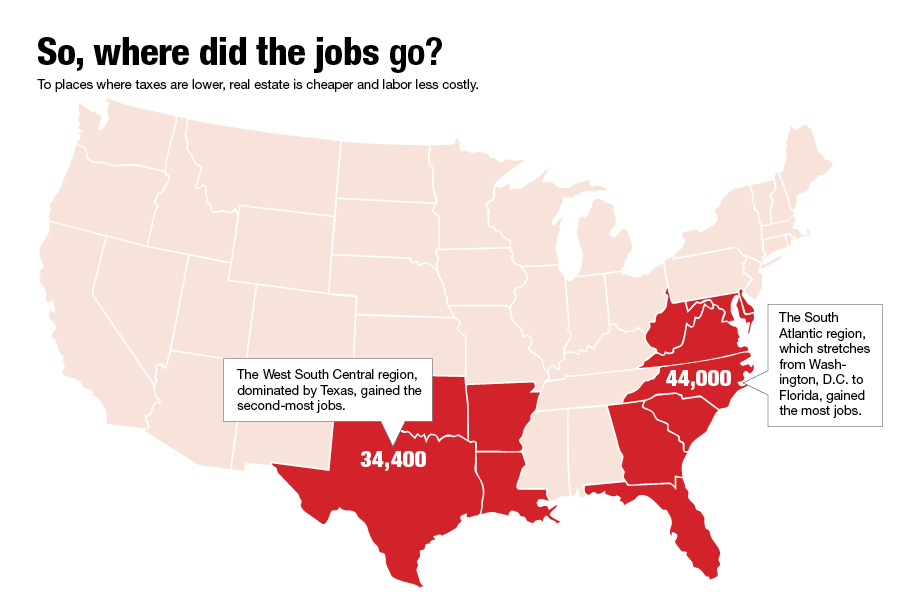

In observance of the 20th anniversary of the Sept. 11 attacks, the InvestmentNews team has written a series of reports looking at how the financial industry has changed in its aftermath and how it's been preparing for the next 9/11 event. Though the specter of something worse continues to be a frightening possibility, rather than pushing 9/11 out of mind or writing it off as an aberration, InvestmentNews contemplates the impact and potential consequences of being unprepared for the next attack from several industry perspectives.
In the fourth installment of the series, Bruce Kelly tracks the geographic shift of advisers out of Manhattan in the 20 years since the attacks.
Sept. 11, 2001, was a horrific day; thousands of lives were lost, families suffered unbelievable grief and tragedy, and the entire country was thrown into shock, followed by decades of war.
But it was also a watershed moment for Wall Street and how people worked, in both the client-facing, retail-focused investment advice industry and larger institutions like hedge funds and investment banks.
Simply put, Wall Street isn't Wall Street anymore. Talent and technology are everywhere, so the proximity to the financial district or midtown Manhattan for a service-oriented business like the securities industry isn't essential.
"You moved here literally because you had to be here," said Larry Roth, managing partner of RLR Strategic Partners and former CEO of Advisor Group and Cetera Financial Group, "And now we don’t want to leave."
The Covid-19 pandemic has prompted many people to question the need to work or continue their professional lives in Manhattan. Advances in technology, namely the revolution in broadband, laptops, mobile phones and other devices, have made working in an office close to or near Manhattan far less important to advance a career in the securities industry.
Even the most iconic symbol of Wall Street, the once bustling floor of the New York Stock Exchange, which teemed with traders and market specialists, has morphed into a living museum of sorts, now just a backdrop for CNBC broadcasts.
Over the past 20 years, securities industry jobs, which include brokers, underwriters, traders and money managers, have migrated from New York City to other parts of the country, according to data from the Bureau of Labor Statistics.
At the end of 2001, 23% of securities industry employees were in Manhattan, falling to 18% as of the end of 2020, according to the data. Over that time, Manhattan lost 14,162 securities workers, while the U. S. gained 112,149 overall.
The decline isn’t wholly attributable to 9/11, obviously. After other major crises of the past two decades, the industry also lost employees — but Manhattan was hit harder.
For example, industry employment declined 5.4% after 9/11, 6.3% after the financial crisis of 2008-09, and 0.4% during the pandemic in 2020, while employment in Manhattan declined 13.2%, 9.6% and 1.1%, respectively.
So, where did the jobs go? To places where taxes are lower, real estate is cheaper and labor less costly.
The South Atlantic region, which stretches from Virginia and Washington D.C. to Florida, gained the most jobs, at 44,000, while the West South Central region, dominated by Texas, gained the second most, at 34,400.

Meanwhile, Lower Manhattan, in the shadow of a new World Trade Center, has gotten a facelift. With securities industry jobs moving out, apartment dwellers have moved in. Of the 33,882 residential units that currently exist in Lower Manhattan, 16,709, or roughly half, were conversions after 1995, according to data from the Alliance for Downtown New York.
"Firms have been moving out of Wall Street for quite some time, moving across the Hudson River to New Jersey or migrating out of the area completely," said Jim Paulsen, chief investment strategist at the Leuthold Group. "Certainly some of that is the business environment in New York. There are costs involved and taxes, but the biggest thing is technology."
"Look at the NYSE," Paulsen said. "Because of technology, you don’t need anybody on the floor anymore."
Stock specialists, whose job was to facilitate trading in specific stocks and ensure liquidity, once crowded the exchange. Now called designated market makers, specialists have been replaced in large part by technology and computers.
"The pandemic eliminated anyone being on the floor of the NYSE, and we didn’t miss a beat," Paulsen noted. "That's a far cry from when I started in the business almost 40 years ago."
But there are exceptions. Some who left New York in 2020 are already considering returning, Roth noted. "Some people who lived in the Hamptons or Florida because of Covid have come back because they are bored."
How the advisory industry has been preparing for the next 9/11 event by Mark Schoeff Jr.
Prepping fintech platforms for the next cyberattack by Nicole Casperson
Are retirement plan providers ready for the next 9/11? by Emile Hallez

Plus, a $400 million Commonwealth team departs to launch an independent family-run RIA in the East Bay area.

The collaboration will focus initially on strategies within collective investment trusts in DC plans, with plans to expand to other retirement-focused private investment solutions.

“I respectfully request that all recruiters for other BDs discontinue their efforts to contact me," writes Thomas Bartholomew.

Wealth tech veteran Aaron Klein speaks out against the "misery" of client meetings, why advisors' communication skills don't always help, and AI's potential to make bad meetings "100 times better."

The proposed $120 million settlement would close the book on a legal challenge alleging the Wall Street banks failed to disclose crucial conflicts of interest to investors.
Orion's Tom Wilson on delivering coordinated, high-touch service in a world where returns alone no longer set you apart.
Barely a decade old, registered index-linked annuities have quickly surged in popularity, thanks to their unique blend of protection and growth potential—an appealing option for investors looking to chart a steadier course through today's choppy market waters, says Myles Lambert, Brighthouse Financial.
